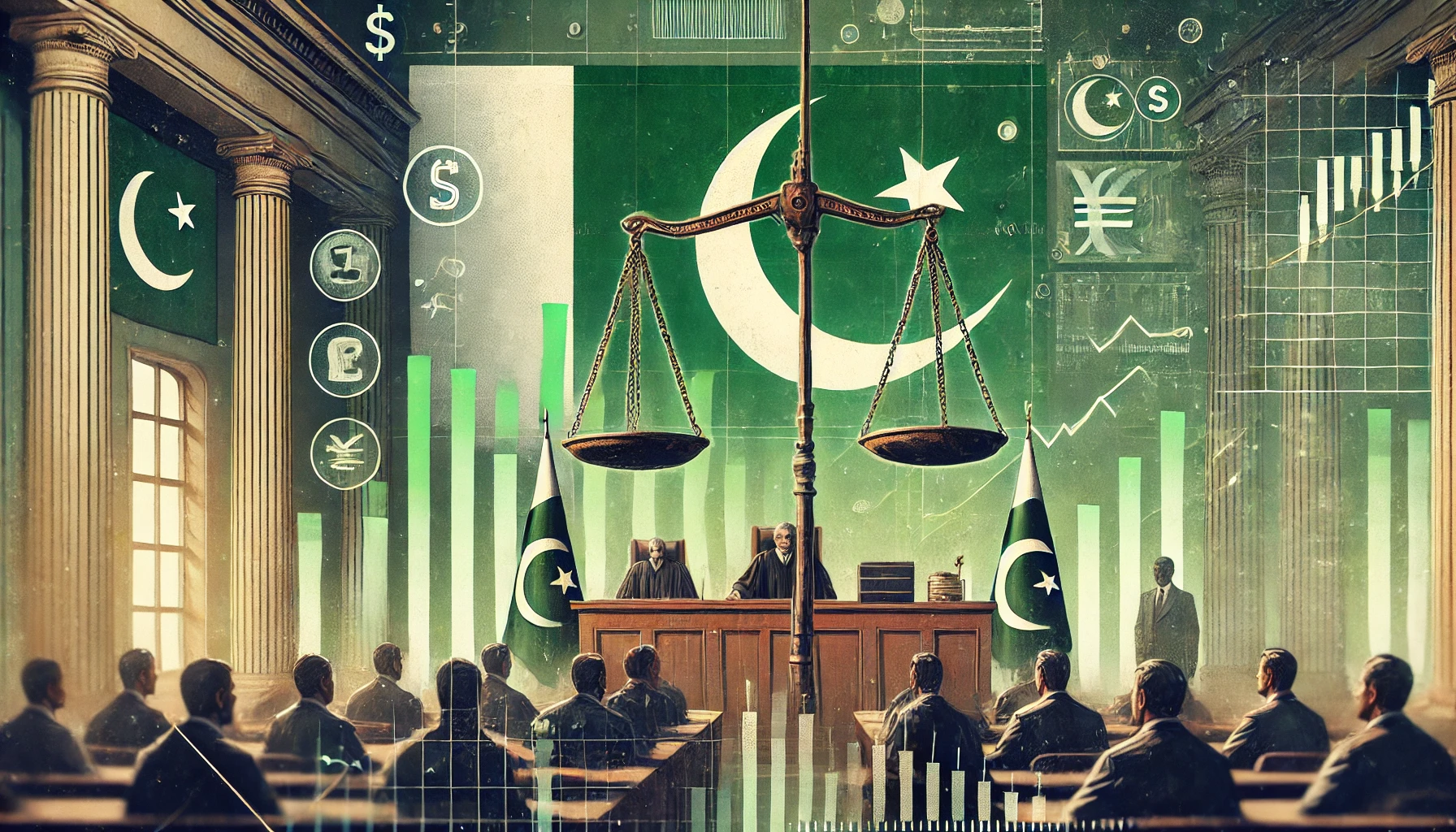Former Pakistani Prime Minister Imran Khan, once a revered cricket captain turned political leader, has been sentenced to 14 years in prison after being convicted in a high-profile corruption case. This landmark verdict stems from allegations that Khan, along with his wife, Bushra Bibi, accepted land worth millions from real estate tycoon Malik Riaz in exchange for laundering illicit funds. While the case marks a significant development in Pakistan’s political landscape, Khan has vehemently denied the charges, attributing his conviction to politically motivated efforts to bar him from office.
Why This Matters to Investors
Pakistan is no stranger to political upheaval, and this latest development adds to an already turbulent climate. Imran Khan’s sentencing is likely to exacerbate political instability, with potential ramifications for the country’s economy and investment environment. The Pakistani rupee has faced devaluation pressures, and the country’s reliance on International Monetary Fund (IMF) bailouts underscores its fragile financial position.
Analysts warn that increased political turmoil could deter foreign direct investment (FDI), disrupt market confidence, and hinder economic reforms crucial for Pakistan’s financial recovery. “Investors will be watching closely to see how this instability impacts key sectors like energy, agriculture, and manufacturing,” notes Raza Ahmed, an economist at the Karachi-based Institute of Economic Studies.
Core Analysis
Background on the Case
The corruption case against Khan and his wife centers on allegations that they used laundered money to secure land from Malik Riaz, one of Pakistan’s most prominent real estate tycoons. The court’s decision to sentence Khan to 14 years and Bushra Bibi to seven years highlights the severity of the charges.
Critics argue that the timing of the case is politically motivated, given that Khan’s party, Pakistan Tehreek-e-Insaf (PTI), has remained a significant opposition force despite his ousting from office in 2022. Protests and public demonstrations by PTI supporters are already underway, raising fears of further unrest.
Economic Implications
Political instability has historically taken a toll on Pakistan’s economy. Key risks for investors include:
- Currency Volatility: The Pakistani rupee has depreciated by over 20% against the US dollar in the past year. Continued unrest could lead to further declines, impacting import-dependent industries.
- Market Confidence: The Karachi Stock Exchange (KSE) may face downward pressure as foreign and domestic investors react to heightened uncertainty.
- FDI Challenges: Pakistan’s FDI inflows, which stood at $1.2 billion in 2023, remain critically low compared to regional peers. Prolonged political uncertainty could deter investment in critical sectors like energy and infrastructure.
Future Trends to Watch
- Geopolitical Relations: Pakistan’s ties with China under the China-Pakistan Economic Corridor (CPEC) may come under scrutiny if political instability undermines project timelines.
- IMF Negotiations: The country’s ability to meet IMF reform requirements could be compromised by political distractions, risking further delays in bailout disbursements.
- Civil Unrest: Large-scale protests by Khan’s supporters could disrupt business operations and supply chains, especially in urban centers.
Key Investment Insight
Investors with exposure to South Asia should closely monitor the evolving situation in Pakistan. While the short-term outlook is fraught with risks, there may be opportunities for long-term investors willing to navigate the volatility. For instance, sectors like renewable energy and IT, which benefit from government incentives, may remain relatively insulated from political turmoil.
However, a cautious approach is advised. Diversification across regional markets and a focus on blue-chip companies with strong fundamentals can help mitigate risks. Keeping an eye on currency movements and hedging where appropriate will also be crucial for protecting investments.
Stay informed with MoneyNews.Today for daily updates on global political developments and their impact on investments. Our in-depth analysis and actionable insights ensure you’re always ahead of the curve in navigating complex market dynamics.





